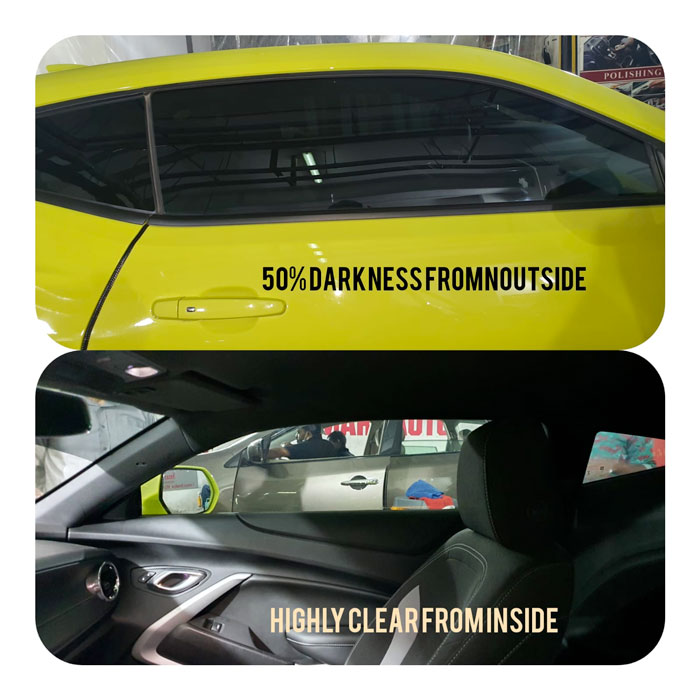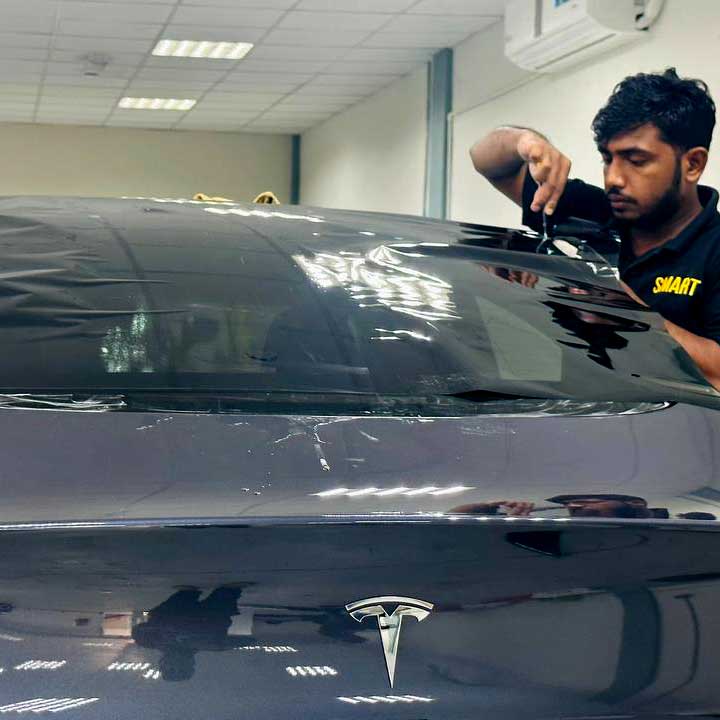Understanding Car Window Tinting Laws in the UAE
Car Window Tinting Laws in the UAE
Car window tinting is a popular modification for vehicles worldwide. Not only does it enhance the aesthetics of a car, but it also serves practical purposes like reducing glare and protecting occupants from harmful UV rays. However, the regulations surrounding window tinting vary from country to country, and in the United Arab Emirates (UAE), they are particularly stringent. In this article, we will delve into the car window tinting laws in the UAE, ensuring you have a clear understanding of what is and isn’t allowed when it comes to tinting your vehicle’s windows.

Understanding the Purpose of Window Tinting
Safety and Comfort
Window tinting primarily serves two essential purposes in the UAE: safety and comfort.
Glare Reduction
One of the key reasons people tint their car windows is to reduce glare from the scorching sun, which can be blinding during the daytime.
UV Protection
Tinted windows provide a shield against harmful ultraviolet (UV) rays, safeguarding the occupants’ skin and eyes from potential damage.
Legal Limits on Tint Darkness
Tint Darkness Regulations
In the UAE, there are strict regulations regarding how dark your car windows can be tinted.
Front Windshield
The front windshield must have a minimum VLT (Visible Light Transmission) of 70%, meaning it should allow at least 70% of light to pass through.
Front Side Windows
The front side windows (driver and passenger) must have a minimum VLT of 50%.
Rear Side Windows
Rear side windows can have a darker tint, with a minimum VLT of 30%.
Rear Window
The rear window can also have a VLT of 30%

Exceptions to the Rule
Medical Exemptions
There are exceptions to these rules for individuals with medical conditions that require increased protection from sunlight. In such cases, a medical certificate is needed to justify the darker tint.
Factory Tint
Some vehicles come with factory-installed tint that complies with UAE regulations. It’s important to check your car’s factory tint level before applying additional tint.
Consequences of Non-Compliance
Legal Penalties
Driving a vehicle with windows that do not comply with UAE tinting laws can result in severe legal penalties, including fines and even vehicle impoundment.
Visibility Concerns
Excessive tint darkness can hinder visibility, especially during nighttime, increasing the risk of accidents.
Importance of Professional Installation
To ensure compliance with UAE tinting laws, it is crucial to have your window tint applied by professionals who are well-versed in local regulations.
Conclusion
In summary, understanding the car window tinting laws in the UAE is vital for vehicle owners. Compliance with these regulations ensures not only your safety but also the safety of others on the road. Always seek professional advice and installation when considering window tinting for your vehicle.
